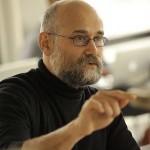 Yochai Benkler is the Berkman Professor of Entrepreneurial Legal Studies at Harvard Law School, and faculty co-director of the Berkman Center for Internet and Society at Harvard University. Since the 1990s he has played a role in characterizing the role of information commons and decentralized collaboration to innovation, information production, and freedom in the networked economy and society. Benkler has advised governments and international organizations on innovation policy and telecommunications, and serves on the boards or advisory boards of several non-profits engaged in working towards an open society. His work can be freely access at benkler.org.
Yochai Benkler is the Berkman Professor of Entrepreneurial Legal Studies at Harvard Law School, and faculty co-director of the Berkman Center for Internet and Society at Harvard University. Since the 1990s he has played a role in characterizing the role of information commons and decentralized collaboration to innovation, information production, and freedom in the networked economy and society. Benkler has advised governments and international organizations on innovation policy and telecommunications, and serves on the boards or advisory boards of several non-profits engaged in working towards an open society. His work can be freely access at benkler.org.
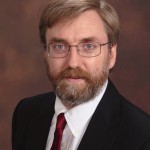 Brian Butler is a professor and the interim Dean of the College of Information Studies at the University of Maryland. He joined the School in 2012 where he has been Director of the Master of Information Management (MIM) program and of the Center for the Advanced Study of Communities and Information (CASCI). His research focuses on developing theories and techniques that enable groups, communities and organizations to harness the full potential of new technologies. His current interests and prior work include: assessing the role of local information institutions in communities’ capacity to adapt to environmental and economic change; techniques for mitigating the impact of politics on technology deployment in organizations; articulating principles for design of successful mass-collaboration systems; and developing methods for assessing the health of community level information infrastructures.
Brian Butler is a professor and the interim Dean of the College of Information Studies at the University of Maryland. He joined the School in 2012 where he has been Director of the Master of Information Management (MIM) program and of the Center for the Advanced Study of Communities and Information (CASCI). His research focuses on developing theories and techniques that enable groups, communities and organizations to harness the full potential of new technologies. His current interests and prior work include: assessing the role of local information institutions in communities’ capacity to adapt to environmental and economic change; techniques for mitigating the impact of politics on technology deployment in organizations; articulating principles for design of successful mass-collaboration systems; and developing methods for assessing the health of community level information infrastructures.
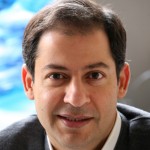 Noshir Contractor is the Jane S. & William J. White Professor of Behavioral Sciences in the McCormick School of Engineering & Applied Science, the School of Communications and the Kellogg School of Management at Northwestern University. He is the Director of the Science of Networks in Communities (SONIC) research center. He is investigating factors that lead to the formation, maintenance, and dissolution of dynamically linked social and knowledge networks in a wide variety of contexts. In 2014 he received the National Communication Association Distinguished Scholar Award recognizing a lifetime of scholarly achievement in the study of human communication. In 2015 he was elected as a Fellow of the International Communication Association.
Noshir Contractor is the Jane S. & William J. White Professor of Behavioral Sciences in the McCormick School of Engineering & Applied Science, the School of Communications and the Kellogg School of Management at Northwestern University. He is the Director of the Science of Networks in Communities (SONIC) research center. He is investigating factors that lead to the formation, maintenance, and dissolution of dynamically linked social and knowledge networks in a wide variety of contexts. In 2014 he received the National Communication Association Distinguished Scholar Award recognizing a lifetime of scholarly achievement in the study of human communication. In 2015 he was elected as a Fellow of the International Communication Association.
 Ulrike Cress is a full professor at the University of Tuebingen and deputy director of the “Leibniz-Institut für Wissensmedien”. She studied psychology at the University of Tuebingen (diploma 1993), achieved her Ph.D. in 2000 with a dissertation about self-regulated learning. In 2006 she got her venia legendi for psychology doing a work on the information-exchange dilemma. With her lab “knowledge construction” she is doing research on learning with new media in formal settings as well as in informal settings. She is interested in knowledge management, and in the development and implementation of media-based learning scenarios. In particular she works on the social and cognitive processes of people constructing new knowledge. Much of her research aims to further develop the Co-Evolution Model of Individual Learning and Collaborative Knowledge Building, which she presented in 2008.
Ulrike Cress is a full professor at the University of Tuebingen and deputy director of the “Leibniz-Institut für Wissensmedien”. She studied psychology at the University of Tuebingen (diploma 1993), achieved her Ph.D. in 2000 with a dissertation about self-regulated learning. In 2006 she got her venia legendi for psychology doing a work on the information-exchange dilemma. With her lab “knowledge construction” she is doing research on learning with new media in formal settings as well as in informal settings. She is interested in knowledge management, and in the development and implementation of media-based learning scenarios. In particular she works on the social and cognitive processes of people constructing new knowledge. Much of her research aims to further develop the Co-Evolution Model of Individual Learning and Collaborative Knowledge Building, which she presented in 2008.
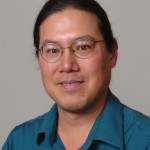 Kevin Crowston is a Distinguished Professor of Information Science in the School of Information Studies at Syracuse University. He received his Ph.D. (1991) in Information Technologies from the Sloan School of Management, Massachusetts Institute of Technology (MIT). His research examines new ways of organizing made possible by the extensive use of information and communications technology. Specific research topics include the development practices of Free/Libre Open Source Software teams and work practices and technology support for citizen science research projects, both with NSF support.
Kevin Crowston is a Distinguished Professor of Information Science in the School of Information Studies at Syracuse University. He received his Ph.D. (1991) in Information Technologies from the Sloan School of Management, Massachusetts Institute of Technology (MIT). His research examines new ways of organizing made possible by the extensive use of information and communications technology. Specific research topics include the development practices of Free/Libre Open Source Software teams and work practices and technology support for citizen science research projects, both with NSF support.
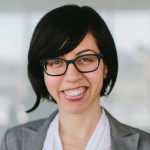 Laura Dabbish is an associate professor in the Human-Computer Interaction Institute in the School of Computer Science at Carnegie Mellon University, jointly appointed in the Heinz College of Public Policy, Information Systems and Management. Laura studies the design and use of communication technologies, with a focus on collaboration and new forms of work. Her research spans the fields of Human-Computer Interaction, Computer-Supported Cooperative Work, Information Systems and Organizational Behavior. She received her B.Sc. in Computer Science from the University of Southern California, and her M.S. and PhD from Carnegie Mellon as part of the first cohort to receive a PhD in the field of Human-Computer Interaction. Laura has spent time at Microsoft Research, studying communication technology usage, and Motorola, Inc., developing software for cellular technology infrastructure. She directs the Connected Experience Lab within the HCI Institute at CMU (coexlab.com).
Laura Dabbish is an associate professor in the Human-Computer Interaction Institute in the School of Computer Science at Carnegie Mellon University, jointly appointed in the Heinz College of Public Policy, Information Systems and Management. Laura studies the design and use of communication technologies, with a focus on collaboration and new forms of work. Her research spans the fields of Human-Computer Interaction, Computer-Supported Cooperative Work, Information Systems and Organizational Behavior. She received her B.Sc. in Computer Science from the University of Southern California, and her M.S. and PhD from Carnegie Mellon as part of the first cohort to receive a PhD in the field of Human-Computer Interaction. Laura has spent time at Microsoft Research, studying communication technology usage, and Motorola, Inc., developing software for cellular technology infrastructure. She directs the Connected Experience Lab within the HCI Institute at CMU (coexlab.com).
 Leslie DeChurch‘s research is being used to improve teams engaged with scientific innovation, military-civil cooperation, humanitarian aid & disaster response, health care, and space exploration. Her research on complex forms of collaboration has been supported by more than $8 Million in extramural funding from NSF, NASA, NIH, ARI, ARO, & ANR (France) including an NSF CAREER award to understand leadership in multiteam systems. She serves on multiple editorial boards, recently served on a National Academy of Science consensus study, and serves on the board of the Interdisciplinary Network for Group Research (INGRoup).
Leslie DeChurch‘s research is being used to improve teams engaged with scientific innovation, military-civil cooperation, humanitarian aid & disaster response, health care, and space exploration. Her research on complex forms of collaboration has been supported by more than $8 Million in extramural funding from NSF, NASA, NIH, ARI, ARO, & ANR (France) including an NSF CAREER award to understand leadership in multiteam systems. She serves on multiple editorial boards, recently served on a National Academy of Science consensus study, and serves on the board of the Interdisciplinary Network for Group Research (INGRoup).
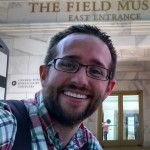 Jeremy Foote is a PhD student at Northwestern, studying Media, Technology, and Society. His research applies computational social science methods toward understanding the social implications of technology. He is interested in the seemingly altruistic behavior that appears online, such as open source software, product reviews, and wiki communities. Much of his work is focused on online communities: why people start communities, and what makes communities grow.
Jeremy Foote is a PhD student at Northwestern, studying Media, Technology, and Society. His research applies computational social science methods toward understanding the social implications of technology. He is interested in the seemingly altruistic behavior that appears online, such as open source software, product reviews, and wiki communities. Much of his work is focused on online communities: why people start communities, and what makes communities grow.
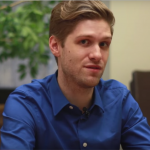 Eric Forbush is the lab manager of the Science of Networks in Communities (SONIC) research group at Northwestern University. He specializes in intercultural/international communication, network science, and the emerging field of computational social science. In particular, he uses a network lens to study issues related to cross-cultural adaptation and team composition/performance. His work has an interdisciplinary focus, utilizing a range of analytical techniques developed across a variety of backgrounds such as computer science, communication, engineering and sociology.
Eric Forbush is the lab manager of the Science of Networks in Communities (SONIC) research group at Northwestern University. He specializes in intercultural/international communication, network science, and the emerging field of computational social science. In particular, he uses a network lens to study issues related to cross-cultural adaptation and team composition/performance. His work has an interdisciplinary focus, utilizing a range of analytical techniques developed across a variety of backgrounds such as computer science, communication, engineering and sociology.
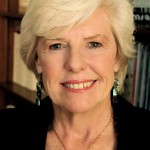 Janet Fulk is Professor of Communications in the Annenberg School for Communication and Journalism, and Professor of Management and Organization the Marshall School of Business at University of Southern California. Her research centers on social aspects of knowledge and distributed intelligence, enterprise social networking, nongovernmental organization networks, and dynamics of online communities. Current projects examine social dynamics in crowdsourcing creative communities, factors leading to post-funding success of crowdfunded projects, motivations and social capital in enterprise social networking, evolution of the social networking site as an organizational form, and the role of storytelling in entrepreneurial nonprofit organizations. She is a Fellow of The Academy of Management and of the International Communication Association, and she holds lifetime achievement awards from The Academy of Management.
Janet Fulk is Professor of Communications in the Annenberg School for Communication and Journalism, and Professor of Management and Organization the Marshall School of Business at University of Southern California. Her research centers on social aspects of knowledge and distributed intelligence, enterprise social networking, nongovernmental organization networks, and dynamics of online communities. Current projects examine social dynamics in crowdsourcing creative communities, factors leading to post-funding success of crowdfunded projects, motivations and social capital in enterprise social networking, evolution of the social networking site as an organizational form, and the role of storytelling in entrepreneurial nonprofit organizations. She is a Fellow of The Academy of Management and of the International Communication Association, and she holds lifetime achievement awards from The Academy of Management.
 Darren Gergle is a Professor in the Department of Communication Studies and the Department of Electrical Engineering and Computer Science (by courtesy) at Northwestern University. He serves as the Director of Graduate Studies for the Technology and Social Behavior joint PhD program in communication studies and computer science, and he is a cochair of the faculty research council for the Segal Design Institute. He received his Ph.D. from the Human-Computer Interaction Institute in the School of Computer Science at Carnegie Mellon University. His research incorporates human-computer interaction, social computing and computermediated communication. He focuses on applying cognitive and social psychological theories to the design, development and evaluation of novel collaboration and peer-production technologies. He has received two Best Paper awards and seven Best Paper Honorable Mention awards for his research, a National Science Foundation CAREER Award, and is a Kavli Fellow of the National Academy of Sciences.
Darren Gergle is a Professor in the Department of Communication Studies and the Department of Electrical Engineering and Computer Science (by courtesy) at Northwestern University. He serves as the Director of Graduate Studies for the Technology and Social Behavior joint PhD program in communication studies and computer science, and he is a cochair of the faculty research council for the Segal Design Institute. He received his Ph.D. from the Human-Computer Interaction Institute in the School of Computer Science at Carnegie Mellon University. His research incorporates human-computer interaction, social computing and computermediated communication. He focuses on applying cognitive and social psychological theories to the design, development and evaluation of novel collaboration and peer-production technologies. He has received two Best Paper awards and seven Best Paper Honorable Mention awards for his research, a National Science Foundation CAREER Award, and is a Kavli Fellow of the National Academy of Sciences.
 Jérôme Hergueux is a post-doctoral researcher at the ETH Zurich and an affiliate researcher at the Berkman Center for Internet & Society at Harvard University. Prior to joining the ETH, Jerome spent three years as a research fellow at the Berkman Center, where he did most of his Ph.D. work. Jerome is a behavioral economist interested in the interplay between psychology and economics. In his research, he couples experimental Jerome holds a Ph.D. in Economics from the University of Strasbourg and Sciences Po, Master’s degrees in both International Economics and International Affairs from Sciences Po, and a B.A. in Economics & Finance from the University of Strasbourg. Jerome originates from the French region of Alsace. He has lived in France, Egypt, the U.S., Jordan and Switzerland. Jerome speaks French, English and Arabic and is heavily interested in political economy and international affairs.
Jérôme Hergueux is a post-doctoral researcher at the ETH Zurich and an affiliate researcher at the Berkman Center for Internet & Society at Harvard University. Prior to joining the ETH, Jerome spent three years as a research fellow at the Berkman Center, where he did most of his Ph.D. work. Jerome is a behavioral economist interested in the interplay between psychology and economics. In his research, he couples experimental Jerome holds a Ph.D. in Economics from the University of Strasbourg and Sciences Po, Master’s degrees in both International Economics and International Affairs from Sciences Po, and a B.A. in Economics & Finance from the University of Strasbourg. Jerome originates from the French region of Alsace. He has lived in France, Egypt, the U.S., Jordan and Switzerland. Jerome speaks French, English and Arabic and is heavily interested in political economy and international affairs.
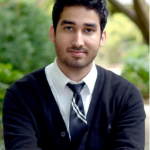 Ivan Hernandez, Ph.D., is a collaborative post-doctoral researcher in the SONIC lab at Northwestern University and the DELTA lab at the Georgia Institute of Technology. His research interests include computational social science (agent-based modeling, text mining, spatial methods), language cognition (fluency, cultural differences), and group behavior (regional variation, social networks, multi-team systems).
Ivan Hernandez, Ph.D., is a collaborative post-doctoral researcher in the SONIC lab at Northwestern University and the DELTA lab at the Georgia Institute of Technology. His research interests include computational social science (agent-based modeling, text mining, spatial methods), language cognition (fluency, cultural differences), and group behavior (regional variation, social networks, multi-team systems).
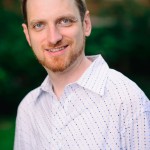 Benjamin Mako Hill is an Assistant Professor in the University Of Washington Department Of Communication in Seattle. At UW, he is an Affiliate Faculty in the Center for Statistics and the Social Sciences, the eScience Institute, and the “Design Use Build” (DUB) group that supports research on human computer interaction. He is also currently a Faculty Affiliate at the Berkman Center for Internet and Society at Harvard University and an affiliate of the Institute of Quantitative Social Science at Harvard. He received his PhD from the Massachusetts Institute of Technology in an interdepartmental program involving the MIT Sloan School of Management and the MIT Media Lab.
Benjamin Mako Hill is an Assistant Professor in the University Of Washington Department Of Communication in Seattle. At UW, he is an Affiliate Faculty in the Center for Statistics and the Social Sciences, the eScience Institute, and the “Design Use Build” (DUB) group that supports research on human computer interaction. He is also currently a Faculty Affiliate at the Berkman Center for Internet and Society at Harvard University and an affiliate of the Institute of Quantitative Social Science at Harvard. He received his PhD from the Massachusetts Institute of Technology in an interdepartmental program involving the MIT Sloan School of Management and the MIT Media Lab.
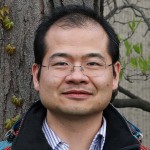 Yun Huang is a research associate in the Science of Networks in Communities (SONIC) research group in the department of Industrial Engineering and Management Sciences at Northwestern University. His research explores the dynamic and evolution of individual behavior and interactions in digital-enabled environments such as scientific collaboration, virtual communities, and online games using data mining, social network analysis, and economics approaches. He holds a doctorate in management science and information systems from McCombs School of Business at the University of Texas at Austin and bachelor’s and master’s degrees in computer science from Tsinghua University.
Yun Huang is a research associate in the Science of Networks in Communities (SONIC) research group in the department of Industrial Engineering and Management Sciences at Northwestern University. His research explores the dynamic and evolution of individual behavior and interactions in digital-enabled environments such as scientific collaboration, virtual communities, and online games using data mining, social network analysis, and economics approaches. He holds a doctorate in management science and information systems from McCombs School of Business at the University of Texas at Austin and bachelor’s and master’s degrees in computer science from Tsinghua University.
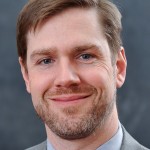 Gerald (Jerry) Kane is an Associate Professor of Information Systems at Boston College’s Carroll School of Management, and he is currently serving as the Guest Editor for Social Business at MIT Sloan Management Review. His research interests include exploring the role of information systems in social networks, organizational applications and implications of social media, and the use of IT in healthcare organizations. Dr. Kane has received grants from the National Science Foundation (CAREER) and from the US Army for his research on social media. He has twice been nominated by Boston College as the US Professor of the Year. His published research has appeared in such academic journals as MIS Quarterly, Information Systems Research, Organization Science, Management Science, Marketing Science, Harvard Business Review, and MIT-Sloan Management Review, among others. Dr. Kane received his Ph.D. from the Goizueta Business School of Emory University and his M.B.A. in Computer Information Systems from Georgia State University.
Gerald (Jerry) Kane is an Associate Professor of Information Systems at Boston College’s Carroll School of Management, and he is currently serving as the Guest Editor for Social Business at MIT Sloan Management Review. His research interests include exploring the role of information systems in social networks, organizational applications and implications of social media, and the use of IT in healthcare organizations. Dr. Kane has received grants from the National Science Foundation (CAREER) and from the US Army for his research on social media. He has twice been nominated by Boston College as the US Professor of the Year. His published research has appeared in such academic journals as MIS Quarterly, Information Systems Research, Organization Science, Management Science, Marketing Science, Harvard Business Review, and MIT-Sloan Management Review, among others. Dr. Kane received his Ph.D. from the Goizueta Business School of Emory University and his M.B.A. in Computer Information Systems from Georgia State University.
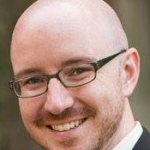 Brian Keegan is a research associate at the Harvard Business school where he works as a data scientist on their HBX online learning platform. He uses methods from network science, data mining, and statistics to understand the structure and dynamics of collaboration in “bursty” contexts. He was previously a post-doc in computational social science at Northeastern University where he researched election predictability using social media data and collective social behavior under shared attention to media events. He received a PhD from Northwestern University’s School of Communication in 2012 and his dissertation analyzed Wikipedia coverage of breaking news events as instances of high-tempo online collaborations. He received bachelors degrees from MIT in Mechanical Engineering and Science, Technology, and Society and grew up outside of Las Vegas, Nevada.
Brian Keegan is a research associate at the Harvard Business school where he works as a data scientist on their HBX online learning platform. He uses methods from network science, data mining, and statistics to understand the structure and dynamics of collaboration in “bursty” contexts. He was previously a post-doc in computational social science at Northeastern University where he researched election predictability using social media data and collective social behavior under shared attention to media events. He received a PhD from Northwestern University’s School of Communication in 2012 and his dissertation analyzed Wikipedia coverage of breaking news events as instances of high-tempo online collaborations. He received bachelors degrees from MIT in Mechanical Engineering and Science, Technology, and Society and grew up outside of Las Vegas, Nevada.
 Isabella Loaiza Saa is a PhD student in the Technology and Social Behavior program at Northwestern University. She holds a B.A. in Business and a B.A. in Logistics and Production from Universidad del Rosario. She is interested in Computational Social Science, Complex Systems Science and Big Data Analytics. In particular, her research is aimed at understanding what causes the disparities in development among nations, and how Information and Communication Technologies can help harness the power of information and knowledge to promote economic growth.
Isabella Loaiza Saa is a PhD student in the Technology and Social Behavior program at Northwestern University. She holds a B.A. in Business and a B.A. in Logistics and Production from Universidad del Rosario. She is interested in Computational Social Science, Complex Systems Science and Big Data Analytics. In particular, her research is aimed at understanding what causes the disparities in development among nations, and how Information and Communication Technologies can help harness the power of information and knowledge to promote economic growth.
 Michael Macy earned his B.A. and Ph.D from Harvard and M.A. from Stanford. He is currently Goldwin Smith Professor of Arts and Sciences and Director of the Social Dynamics Laboratory at Cornell, with a dual appointment in the Departments of Sociology and Information Science. With support from the U.S. National Science Foundation, Google, Minerva Initiative, and the National Research Foundation of Korea, his research team has used computational models, online laboratory experiments, and digital traces of device-mediated interaction to explore familiar but enigmatic social patterns, such as circadian rhythms, lifestyle politics, the mesh of civilizations, the emergence and collapse of fads, the spread of self-destructive behaviors, cooperation in social dilemmas, the critical mass in collective action, the spread of complex contagions, the polarization of opinion, segregation of neighborhoods, and assimilation of minority cultures. His research has been published in leading journals, including Science, PNAS, American Journal of Sociology, American Sociological Review, and Annual Review of Sociology.
Michael Macy earned his B.A. and Ph.D from Harvard and M.A. from Stanford. He is currently Goldwin Smith Professor of Arts and Sciences and Director of the Social Dynamics Laboratory at Cornell, with a dual appointment in the Departments of Sociology and Information Science. With support from the U.S. National Science Foundation, Google, Minerva Initiative, and the National Research Foundation of Korea, his research team has used computational models, online laboratory experiments, and digital traces of device-mediated interaction to explore familiar but enigmatic social patterns, such as circadian rhythms, lifestyle politics, the mesh of civilizations, the emergence and collapse of fads, the spread of self-destructive behaviors, cooperation in social dilemmas, the critical mass in collective action, the spread of complex contagions, the polarization of opinion, segregation of neighborhoods, and assimilation of minority cultures. His research has been published in leading journals, including Science, PNAS, American Journal of Sociology, American Sociological Review, and Annual Review of Sociology.
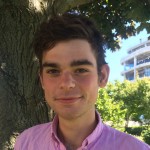 Jim Maddock is a first year Ph.D. student in the Technology and Social Behavior program at Northwestern University, where he works with Darren Gergle to explore online peer production and collective action community dynamics. He completed his undergraduate degree at the University of Washington, working extensively with Kate Starbird on crisis informatics projects. When he’s not thinking about research, Jim is likely riding one of his four bicycles.
Jim Maddock is a first year Ph.D. student in the Technology and Social Behavior program at Northwestern University, where he works with Darren Gergle to explore online peer production and collective action community dynamics. He completed his undergraduate degree at the University of Washington, working extensively with Kate Starbird on crisis informatics projects. When he’s not thinking about research, Jim is likely riding one of his four bicycles.
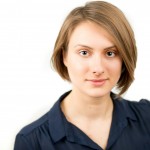 Meghan McCarter is the Project Coordinator for SONIC Lab. She holds a BA from Northwestern University and plans to combine her experience in communication and research to pursue a career in Science Communication. She believes that improving science literacy is critical to overcoming the defining obstacles of her generation. Specifically, she would like to address issues of environmental policy, sustainability, and educational enrichment. She is entirely too enthusiastic to be cool.
Meghan McCarter is the Project Coordinator for SONIC Lab. She holds a BA from Northwestern University and plans to combine her experience in communication and research to pursue a career in Science Communication. She believes that improving science literacy is critical to overcoming the defining obstacles of her generation. Specifically, she would like to address issues of environmental policy, sustainability, and educational enrichment. She is entirely too enthusiastic to be cool.
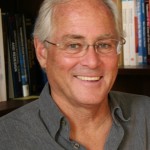 Peter Monge is Professor of Communication at the Annenberg School for Communication and Journalism and Professor of Management and Organization at the Marshall School of Business, University of Southern California. He is also Co-Director of the Annenberg Networks Network, a research center focused on communication network theory and research, and Director of the Annenberg Doctoral Program. He has published five books, the most recent of which is Theories of Communication Networks (with Noshir Contractor). He has published theoretical and research articles on organizational communication networks, evolutionary and ecological theory, collaborative information systems, globalization, and research methods. He is an elected Fellow and a former president of the International Communication Association (ICA, 1997-1998). He has received the ICA Steven H. Chaffee Lifetime Achievement Award and the B. Aubrey Fisher Mentorship Award, where nine of his doctoral advisees have won dissertation awards. He is a Distinguished Scholar of the National Communication Association. From 1986 to 1993 he served as editor of Communication Research. In 2015 he received the USC Provost’s Mentoring Award.
Peter Monge is Professor of Communication at the Annenberg School for Communication and Journalism and Professor of Management and Organization at the Marshall School of Business, University of Southern California. He is also Co-Director of the Annenberg Networks Network, a research center focused on communication network theory and research, and Director of the Annenberg Doctoral Program. He has published five books, the most recent of which is Theories of Communication Networks (with Noshir Contractor). He has published theoretical and research articles on organizational communication networks, evolutionary and ecological theory, collaborative information systems, globalization, and research methods. He is an elected Fellow and a former president of the International Communication Association (ICA, 1997-1998). He has received the ICA Steven H. Chaffee Lifetime Achievement Award and the B. Aubrey Fisher Mentorship Award, where nine of his doctoral advisees have won dissertation awards. He is a Distinguished Scholar of the National Communication Association. From 1986 to 1993 he served as editor of Communication Research. In 2015 he received the USC Provost’s Mentoring Award.
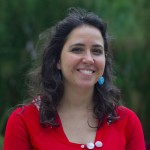 Mayo Fuster Morell holds a Ramon y Cajal researcher position at the Institute of Government and Public Policies at the Open University of Catalonia/ Autonomous University of Barcelona, where she directs a research group on digital commons and Internet politics (IGOPnet.cc). She holds a PhD in social and political science from the European University Institute (dissertated on the governance of digital commons), a degree in Economics (University of Valencia), and a degree in Social and Cultural Anthropology (University Rovira i Virgili). She has been a visiting scholar at the School of Information of the University of California Berkeley and the Communication Department Stanford University.
Mayo Fuster Morell holds a Ramon y Cajal researcher position at the Institute of Government and Public Policies at the Open University of Catalonia/ Autonomous University of Barcelona, where she directs a research group on digital commons and Internet politics (IGOPnet.cc). She holds a PhD in social and political science from the European University Institute (dissertated on the governance of digital commons), a degree in Economics (University of Valencia), and a degree in Social and Cultural Anthropology (University Rovira i Virgili). She has been a visiting scholar at the School of Information of the University of California Berkeley and the Communication Department Stanford University.
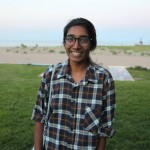 Sneha Narayan is a fourth-year PhD student in the Technology and Social Behavior PhD program. Her research interests include understanding newcomer mobilization/socialization in peer production communities, and designing field experiments for online environments. She is a part of the Community Data Science Collective and is advised by Aaron Shaw.
Sneha Narayan is a fourth-year PhD student in the Technology and Social Behavior PhD program. Her research interests include understanding newcomer mobilization/socialization in peer production communities, and designing field experiments for online environments. She is a part of the Community Data Science Collective and is advised by Aaron Shaw.
 Jeff Nickerson is a Professor in the School of Business at Stevens Institute of Technology. His research interests include peer production, collective intelligence crowdsourcing, distributed cognition, and systems design. His current research on remixing, collective design and collective problem solving is supported by the National Science Foundation. Prior to joining Stevens, he had an industry career that included roles at Time, AT&T, Salomon, and PwC. He serves on the boards of two companies in San Francisco and New York. He has a Ph.D. in Computer Science from New York University
Jeff Nickerson is a Professor in the School of Business at Stevens Institute of Technology. His research interests include peer production, collective intelligence crowdsourcing, distributed cognition, and systems design. His current research on remixing, collective design and collective problem solving is supported by the National Science Foundation. Prior to joining Stevens, he had an industry career that included roles at Time, AT&T, Salomon, and PwC. He serves on the boards of two companies in San Francisco and New York. He has a Ph.D. in Computer Science from New York University
 Xiangju Qin is a PhD student in Computer Science at University College Dublin, under the direction of Prof. Padraig Cunningham. Her research interests span Data Mining, Machine Learning, Bayesian Nonparametric Modeling, and Computational Social Science. Her graduate research focused on understanding the key elements that support and sustain successful online collaboration (particularly Wikipedia) using social network analysis and Bayesian nonparametric learning. Specifically, she studied the influence of social network structures and member turnover on the performance of virtual teams using social network theory to describe the difference between well-functioning and mal-functioning collaborative groups.
Xiangju Qin is a PhD student in Computer Science at University College Dublin, under the direction of Prof. Padraig Cunningham. Her research interests span Data Mining, Machine Learning, Bayesian Nonparametric Modeling, and Computational Social Science. Her graduate research focused on understanding the key elements that support and sustain successful online collaboration (particularly Wikipedia) using social network analysis and Bayesian nonparametric learning. Specifically, she studied the influence of social network structures and member turnover on the performance of virtual teams using social network theory to describe the difference between well-functioning and mal-functioning collaborative groups.
 Ruqin Ren is interested in studying collective intelligence systems, group informational behaviors, using social network analysis, semantic analysis and other computational techniques. Prior to entering USC, Ruqin worked as a social media data analyst at Eli Lilly, using the studies of online policy advocacy communities to effectively organize and enable digital conversation. She holds an M.A. from Georgetown University’s Communication, Culture, and Technology program, and B.A. in English, B.S. in Business Management from University of International Business in Beijing.
Ruqin Ren is interested in studying collective intelligence systems, group informational behaviors, using social network analysis, semantic analysis and other computational techniques. Prior to entering USC, Ruqin worked as a social media data analyst at Eli Lilly, using the studies of online policy advocacy communities to effectively organize and enable digital conversation. She holds an M.A. from Georgetown University’s Communication, Culture, and Technology program, and B.A. in English, B.S. in Business Management from University of International Business in Beijing.
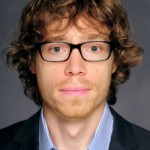 Chris Riedl is assistant professor for Information Systems at the D’AmoreMcKim School of Business at Northeastern University. He holds an appointment at and the College of Computer & Information Science, is a core faculty at the Network Science Institute, and a fellow at the Institute for Quantitative Social Science (IQSS) at Harvard University. He is recipient of a Young Investigator Award (YIP) for his work on social networks in collaborative decision-making. Before joining Northeastern University he was a post-doctoral fellow at Harvard Business School and IQSS. He received a PhD in Information Systems from Technische Universität München (TUM), Germany in 2011, a MSc in Information Systems in 2007, and a BSc in Computer Science in 2006. His work has been funded by NSF and published in leading business and computer science journals including Management Science, Communications of the AIS, and International Journal of Electronic Commerce.
Chris Riedl is assistant professor for Information Systems at the D’AmoreMcKim School of Business at Northeastern University. He holds an appointment at and the College of Computer & Information Science, is a core faculty at the Network Science Institute, and a fellow at the Institute for Quantitative Social Science (IQSS) at Harvard University. He is recipient of a Young Investigator Award (YIP) for his work on social networks in collaborative decision-making. Before joining Northeastern University he was a post-doctoral fellow at Harvard Business School and IQSS. He received a PhD in Information Systems from Technische Universität München (TUM), Germany in 2011, a MSc in Information Systems in 2007, and a BSc in Computer Science in 2006. His work has been funded by NSF and published in leading business and computer science journals including Management Science, Communications of the AIS, and International Journal of Electronic Commerce.
 Charlie Schweik is a professor jointly appointed between the department of Environmental Conservation and the Center for Public Policy and Administration at the University of Massachusetts, Amherst. He is a social scientist working to understand Internet-based collective action and online commons-based peer production. Over the last decade, his research has focused on the study of open-source software communities, and the socio-technical systems and governance structures that support these systems of co-production. His book, Internet Success: A Study of Open Source Software Commons (MIT Press, 2012) analyzed more than 170,000 such projects, in an effort to explain what leads some to ongoing collaborative success and many others to early abandonment. With this grounding in open source collaboration complete, his current list of projects are expanding into other online peer-production settings that, in some way, mimic or borrow collaborative principles from open source software.
Charlie Schweik is a professor jointly appointed between the department of Environmental Conservation and the Center for Public Policy and Administration at the University of Massachusetts, Amherst. He is a social scientist working to understand Internet-based collective action and online commons-based peer production. Over the last decade, his research has focused on the study of open-source software communities, and the socio-technical systems and governance structures that support these systems of co-production. His book, Internet Success: A Study of Open Source Software Commons (MIT Press, 2012) analyzed more than 170,000 such projects, in an effort to explain what leads some to ongoing collaborative success and many others to early abandonment. With this grounding in open source collaboration complete, his current list of projects are expanding into other online peer-production settings that, in some way, mimic or borrow collaborative principles from open source software.
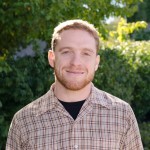 Aaron Shaw is an Assistant Professor in the Department of Communication Studies at Northwestern University and a Faculty Associate of the Berkman Center for Internet and Society at Harvard University. Aaron studies collective action, collaboration, and mobilization online. Most of his current projects identify organizational factors that determine whether peer production communities (like Wikipedia) and other open collectives online grow or not.
Aaron Shaw is an Assistant Professor in the Department of Communication Studies at Northwestern University and a Faculty Associate of the Berkman Center for Internet and Society at Harvard University. Aaron studies collective action, collaboration, and mobilization online. Most of his current projects identify organizational factors that determine whether peer production communities (like Wikipedia) and other open collectives online grow or not.
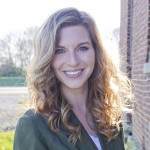 Emily Sidnam received her M.A. in Media, Technology and Society from Purdue University, with a minor in Social Networks & Social Capital. At Purdue, Emily contributed to a research project on Twitter and safety behavior for the Department of Homeland Security’s VACCINE group, and her master’s thesis explored how usage motivations and social capital may inform knowledge gaps in a social network site setting. Emily is currently pursuing her PhD in Communication at USC Annenberg, where she is a member of the ANN research team. Broadly, her research interests include new media, social networks and media effects, focusing on topics such as usage motivations, information behavior, social capital and the digital divide.
Emily Sidnam received her M.A. in Media, Technology and Society from Purdue University, with a minor in Social Networks & Social Capital. At Purdue, Emily contributed to a research project on Twitter and safety behavior for the Department of Homeland Security’s VACCINE group, and her master’s thesis explored how usage motivations and social capital may inform knowledge gaps in a social network site setting. Emily is currently pursuing her PhD in Communication at USC Annenberg, where she is a member of the ANN research team. Broadly, her research interests include new media, social networks and media effects, focusing on topics such as usage motivations, information behavior, social capital and the digital divide.
 Kristen Steves is a third-year PhD student at USC Annenberg interested in group and organization processes. She studies information flow and social dynamics in networks, focusing on how actors discretely extract information from reciprocal interactions among other actors. Additionally, Kristen seeks to understand the role of technology in transactive memory systems. Her interests also include complex adaptive systems as well as knowledge sharing and hiding. Kristen received her B.S. with honors in Communication with a minor in Education from Cornell University.
Kristen Steves is a third-year PhD student at USC Annenberg interested in group and organization processes. She studies information flow and social dynamics in networks, focusing on how actors discretely extract information from reciprocal interactions among other actors. Additionally, Kristen seeks to understand the role of technology in transactive memory systems. Her interests also include complex adaptive systems as well as knowledge sharing and hiding. Kristen received her B.S. with honors in Communication with a minor in Education from Cornell University.
 Kyosuke Tanaka is a first year PhD student in the Media, Technology, and Society program at Northwestern University, working in Noshir Contractor’s SONIC lab. His research interests lie at the intersection of network science and web science. His recent work examines the role of self-disclosure via online social network profiles and the impacts of social media use in developing countries. He holds a Master of Social Research from Australian National University.
Kyosuke Tanaka is a first year PhD student in the Media, Technology, and Society program at Northwestern University, working in Noshir Contractor’s SONIC lab. His research interests lie at the intersection of network science and web science. His recent work examines the role of self-disclosure via online social network profiles and the impacts of social media use in developing countries. He holds a Master of Social Research from Australian National University.
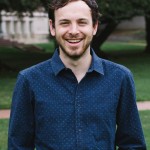 Nathan TeGrotenhuis is a first year Ma/P.H.D. student in the department of communication at the university of Washington. He is just getting started on work with Benjamin Mako Hill looking at ecological studies of Debian, Wikia and Reddit. He was a developer for Microsoft before getting involved with the community at UW. He has recently enjoyed mentoring at community data science seminars and experimenting with Twitter bots.
Nathan TeGrotenhuis is a first year Ma/P.H.D. student in the department of communication at the university of Washington. He is just getting started on work with Benjamin Mako Hill looking at ecological studies of Debian, Wikia and Reddit. He was a developer for Microsoft before getting involved with the community at UW. He has recently enjoyed mentoring at community data science seminars and experimenting with Twitter bots.
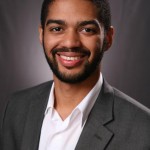 Marlon Twyman is in the third year of the Technology and Social Behavior PhD program at Northwestern University. His research interests include on social networks, team assembly, and collaboration. His current research involves quantitative statistical analysis and computational modeling. He enjoys collaborating and solving interdisciplinary research problems. He has a B.S. and M.S. in Biomedical Engineering and has had diverse research experiences in material science, biomedical engineering, technology policy, and human-centered design.
Marlon Twyman is in the third year of the Technology and Social Behavior PhD program at Northwestern University. His research interests include on social networks, team assembly, and collaboration. His current research involves quantitative statistical analysis and computational modeling. He enjoys collaborating and solving interdisciplinary research problems. He has a B.S. and M.S. in Biomedical Engineering and has had diverse research experiences in material science, biomedical engineering, technology policy, and human-centered design.
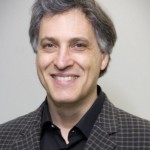 Brian Uzzi is a globally recognized scientist, teacher, consultant and speaker on leadership, social networks, and new media. He is the Richard L. Thomas Professor of Leadership and Organizational Change at the Kellogg School of Management, Northwestern University. He also co-directs NICO, the Northwestern Institute on Complex Systems, is the faculty director of the Kellogg Architectures of Collaboration Initiative (KACI), and holds professorships in Sociology at the Weinberg College of Arts of Sciences and in Industrial Engineering and Management Sciences at the McCormick School of Engineering. He has lectured and advised companies and governments around the world and been on the faculties of INSEAD, University of Chicago, and Harvard University. In 2007-2008, he was on the faculty of the University of California at Berkeley where he was the Warren E. and Carol Spieker Professor of Leadership.
Brian Uzzi is a globally recognized scientist, teacher, consultant and speaker on leadership, social networks, and new media. He is the Richard L. Thomas Professor of Leadership and Organizational Change at the Kellogg School of Management, Northwestern University. He also co-directs NICO, the Northwestern Institute on Complex Systems, is the faculty director of the Kellogg Architectures of Collaboration Initiative (KACI), and holds professorships in Sociology at the Weinberg College of Arts of Sciences and in Industrial Engineering and Management Sciences at the McCormick School of Engineering. He has lectured and advised companies and governments around the world and been on the faculties of INSEAD, University of Chicago, and Harvard University. In 2007-2008, he was on the faculty of the University of California at Berkeley where he was the Warren E. and Carol Spieker Professor of Leadership.
 Rong Wang is a doctoral candidate at the Annenberg School for Communication & Journalism, University of Southern California. Rong received her B.A. in Journalism and Communication from Nanjing University, and her M.A. in Communications and New Media from National University of Singapore. Prior to USC, Rong worked at the International Development Research Centre (IDRC) with the Information and Networks program. Currently pursuing her doctoral degree at USC Annenberg, her research interests are focused on open social innovation, network analysis, organizational communication, and ICTD. Her work has been published at First Monday, Information Technologies & International Development (ITID), and Journal of Community Psychology. She is currently working on a project about Commons-based peer production, which analyzes how different forms of engagement influence the structures of collaboration networks and outcomes of collaborative production.
Rong Wang is a doctoral candidate at the Annenberg School for Communication & Journalism, University of Southern California. Rong received her B.A. in Journalism and Communication from Nanjing University, and her M.A. in Communications and New Media from National University of Singapore. Prior to USC, Rong worked at the International Development Research Centre (IDRC) with the Information and Networks program. Currently pursuing her doctoral degree at USC Annenberg, her research interests are focused on open social innovation, network analysis, organizational communication, and ICTD. Her work has been published at First Monday, Information Technologies & International Development (ITID), and Journal of Community Psychology. She is currently working on a project about Commons-based peer production, which analyzes how different forms of engagement influence the structures of collaboration networks and outcomes of collaborative production.
 Yuehan (Grace) Wang is a first year doctoral student at USC, School for Communication. Her current research interests are two folded: First, she wants to explore the factors affecting the adoption of new technological tools and how people use new technologies to communicate in terms of their psychological implications. Second, she is interested in studying how companies with diverse national backgrounds build their organizations and online communities and what political, cultural or other sociological factors are influencing their organizations and online communities. Yuehan is currently participating in Annenberg Networks Network and Scenario Lab (mainly working on a China related climate change project). She is also the staff writer at US-China Institute, actively participating China related research projects. Yuehan enjoys reading, traveling, dancing, drumming, swimming and all the things make life wonderful.
Yuehan (Grace) Wang is a first year doctoral student at USC, School for Communication. Her current research interests are two folded: First, she wants to explore the factors affecting the adoption of new technological tools and how people use new technologies to communicate in terms of their psychological implications. Second, she is interested in studying how companies with diverse national backgrounds build their organizations and online communities and what political, cultural or other sociological factors are influencing their organizations and online communities. Yuehan is currently participating in Annenberg Networks Network and Scenario Lab (mainly working on a China related climate change project). She is also the staff writer at US-China Institute, actively participating China related research projects. Yuehan enjoys reading, traveling, dancing, drumming, swimming and all the things make life wonderful.
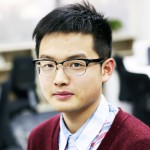 Yu Xu is now a second-year Ph.D. student at USC Annenberg School for Communication and Journalism. He received his B.A. in communication from Fudan University in 2012. He graduated from Tsinghua Univeristy with a M.A. in journalism and communication in 2014. His current research interests include social network theory and analysis, computational social science, organizational communication, and political communication. Yu have presented papers in conferences such as ICA, AOM, ASA, INSNA Sunbelt, NCA, and IAMCR.
Yu Xu is now a second-year Ph.D. student at USC Annenberg School for Communication and Journalism. He received his B.A. in communication from Fudan University in 2012. He graduated from Tsinghua Univeristy with a M.A. in journalism and communication in 2014. His current research interests include social network theory and analysis, computational social science, organizational communication, and political communication. Yu have presented papers in conferences such as ICA, AOM, ASA, INSNA Sunbelt, NCA, and IAMCR.
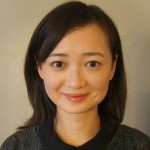 Bei Yan is interested on computer-mediated knowledge collaboration in online settings, with a particular focus on the communication and social influence processes within online knowledge collaboration. She conducts online experiments, applies social network analysis and analyzes behavioral data sets of online knowledge communities, such as Stack Overflow and Wikipedia. Bei received her double master’s degrees in Global Media and Communications from the London School of Economics and the University of Southern California. She graduated from Renmin University of China with a bachelor’s degree in marketing.
Bei Yan is interested on computer-mediated knowledge collaboration in online settings, with a particular focus on the communication and social influence processes within online knowledge collaboration. She conducts online experiments, applies social network analysis and analyzes behavioral data sets of online knowledge communities, such as Stack Overflow and Wikipedia. Bei received her double master’s degrees in Global Media and Communications from the London School of Economics and the University of Southern California. She graduated from Renmin University of China with a bachelor’s degree in marketing.
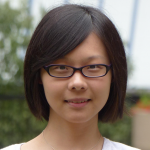 Haiyi Zhu is an Assistant Professor in the Department of Computer Science and Engineering at University of Minnesota, Twin Cities. She recently received her Ph.D. from the Human Computer Interaction Institute at Carnegie Mellon University in August 2015. Her PhD work combines management theories, statistics and machine learning to understand the underlying principles in large-scale social computing systems. She is a recipient of several awards, including best paper honorable mentions in CSCW’ 2012, CHI’ 2013, Human Factor Prize 2013′, and Facebook fellowship 2014-2015.
Haiyi Zhu is an Assistant Professor in the Department of Computer Science and Engineering at University of Minnesota, Twin Cities. She recently received her Ph.D. from the Human Computer Interaction Institute at Carnegie Mellon University in August 2015. Her PhD work combines management theories, statistics and machine learning to understand the underlying principles in large-scale social computing systems. She is a recipient of several awards, including best paper honorable mentions in CSCW’ 2012, CHI’ 2013, Human Factor Prize 2013′, and Facebook fellowship 2014-2015.
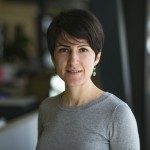 Leila Zia is a Research Scientist at the Wikimedia Foundation, the non-profit that runs Wikipedia. Her research interests span increasing content creation across Wikimedia projects including Wikipedia and Wikidata as well as understanding and improving access to Wikimedia’s content using optimization, statistical learning, and data mining techniques. She received a PhD degree in Management Science and Engineering and a MSc in Operations Research from Stanford University, and a MSc in Industrial and Systems Engineering from Rutgers University.
Leila Zia is a Research Scientist at the Wikimedia Foundation, the non-profit that runs Wikipedia. Her research interests span increasing content creation across Wikimedia projects including Wikipedia and Wikidata as well as understanding and improving access to Wikimedia’s content using optimization, statistical learning, and data mining techniques. She received a PhD degree in Management Science and Engineering and a MSc in Operations Research from Stanford University, and a MSc in Industrial and Systems Engineering from Rutgers University.
